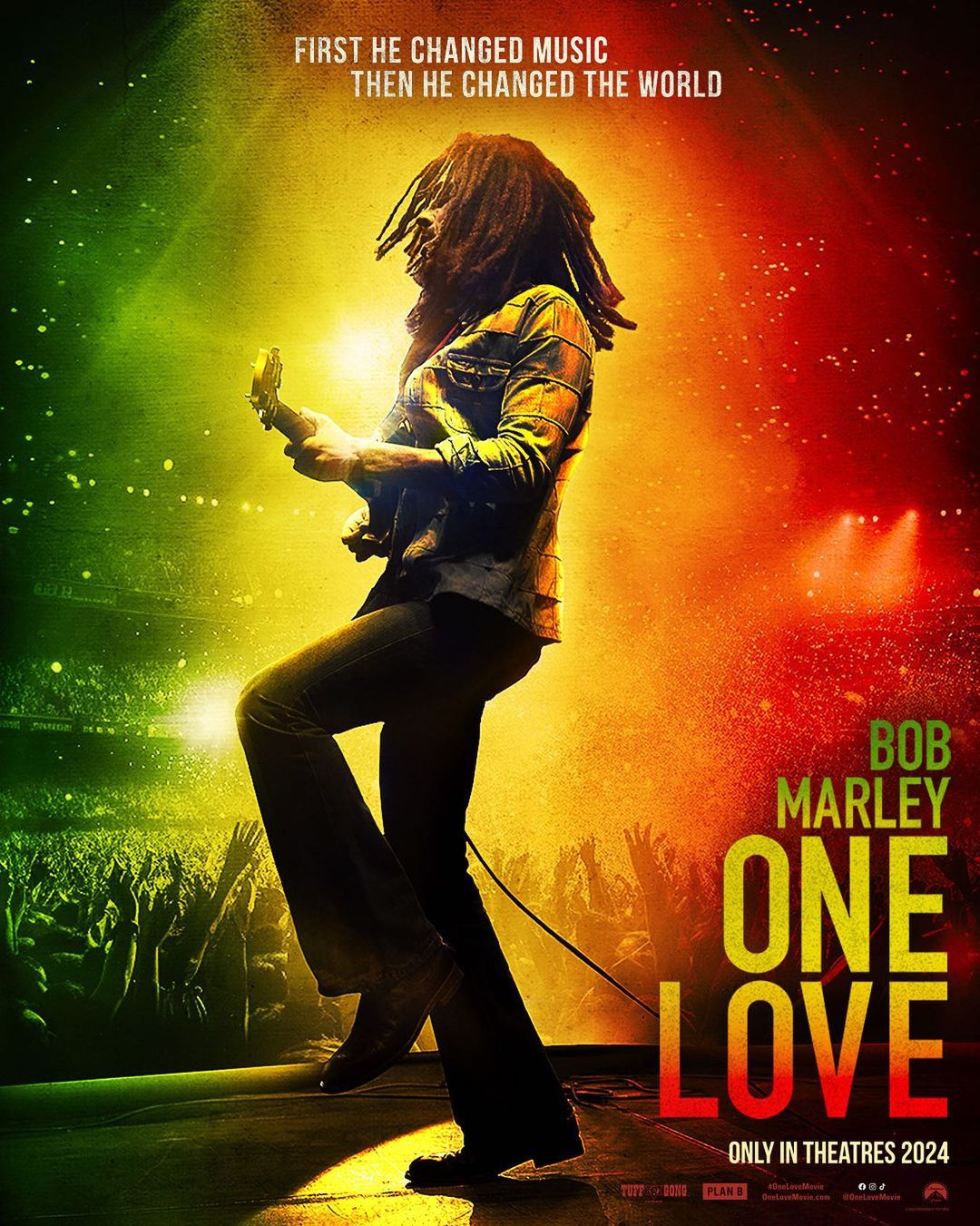Features
Chaste Inegbedion: Wisdom and Leadership Nuggets from Bob Marley’s “One Love” and “Exodus”
Over the weekend, my spouse, Roxanne Stewart, and I were swept away by the magnetic allure of a cinematic experience. From Valentine’s to President’s Day, we were immersed in the soul-stirring narrative of “Bob Marley: One Love.” This cinematic experience not only exceeded our expectations but also bestowed upon us profound insights into the realms of leadership, love, and unity, echoing the timeless lessons enshrined in the melodies of Bob Marley.
“One Love” is a genuine reinterpretation and a triumphant celebration of the original narrative. With a heightened emphasis on joy and connection through the infusion of music and dance, this cinematic masterpiece artfully captures Marley’s essence. Under the skilful direction of Reinaldo Marcus Green, the biopic showcases stellar performances by Kingsley Ben-Adir as Bob Marley and Lashana Lynch as Marley’s wife, Rita Marley. While adhering to conventional biopic blueprints, the film successfully navigates through Marley’s pivotal moments and delves into the consequential activism stemming from his artistry. Marley’s iconic hits, including “Get Up, Stand Up” and “No Woman, No Cry,” reverberate throughout the film. However, the anthem of togetherness, “One Love” (1965), occupies a special place. As the lyrics cascade through the theatre, an irresistible urge to join the chorus sweeps over the audience: “One love! One heart! Let’s get together and feel all right.” Marley’s music transcends borders, leaving an indelible mark on the cinematic experience.
In stark contrast, “One Love: A Quirky Love Affair” the 2003 romantic drama film, directed by Rick Elgood and Don Letts, unveils a unique love story against the exotic backdrop of Jamaica. The narrative orbits around Serena (Cherine Anderson), the gospel-singing daughter of a devout Pentecostal preacher, facing societal pressures to marry a church-approved suitor (Idris Elba). The plot takes a captivating turn when Serena crosses paths with the laid-back Rasta Reggae musician, Kassa (Ky-Mani Marley, son of Bob Marley), during a music contest. Their forbidden romance unfolds amidst the backdrop of a corrupt record producer, as they valiantly fight for a fair recording contract.
Comparative Analysis: Breathing New Life into Marley’s Legacy
After analysing both versions of the film, it’s clear that the 2024 “One Love” iteration is a more vibrant and celebratory take on the original material. With a more diverse and relatable cast, as well as innovative storytelling techniques, the movie revitalises Marley’s story. By introducing new characters, the narrative becomes more complex and immersive, resulting in a more engaging cinematic experience. On the other hand, the 2003 version, while featuring commendable acting performances, fails to reach its full potential due to a lack of directorial insight. It doesn’t explore the protagonist’s struggles and the underlying themes as deeply as it could have, highlighting the importance of strong direction in conveying a story’s depth.
Leadership Insights from Cinematic and Musical Tapestry
Amidst the captivating narratives, both in the films and Marley’s music, profound leadership lessons emanate, resonating across the boundaries of time and culture.
“One Love! One Heart!”
Leadership devoid of love faces an uphill battle. Love is not a mere emotion but an essential ingredient for successful leadership. It forms the foundation of a leader’s identity, fostering trust, understanding, and empathy. Love enables leaders to connect profoundly, creating an environment where individuals feel valued and motivated.
“Give thanks and praise to the lord, and I will feel all right…there is no hiding place from the father of creation.“
Leaders need to recognise the importance of a higher power. Acknowledging a higher power keeps leaders grounded, fostering humility. This spiritual connection allows them to navigate challenges with resilience and seek guidance beyond their capabilities.
“Let them all pass all their dirty remarks (one love!).“
Leaders must understand that receiving negative feedback is an unavoidable aspect of their leadership journey. However, a good leader accepts and leverages it as a chance to grow, treating criticism with kindness and empathy. This approach encourages open communication, which is a valuable tool for both personal and professional development.
“Is there a place for the hopeless sinner who has hurt all mankind just to save his own beliefs? / Have pity on those whose chances grow thinner.“
Leaders care about everyone and recognise diverse needs. Effective leaders go the extra mile to ensure every team member feels valued and supported. This inclusivity creates a nurturing environment for everyone to thrive.
“Let’s get together to fight this holy Armageddon/Let’s get together and feel all right.“
Leaders need to recognise the significance of unity as it drives progress. When leaders prioritise unity, they motivate their teams to work collectively towards shared objectives. By promoting collaboration, leaders create work environments that facilitate the emergence of innovative solutions and breakthroughs by leveraging diverse skill sets. Unity also strengthens relationships and fosters trust, making it easier to overcome challenges.
“Exodus” – A Melodic Manifesto of Leadership Wisdom
Bob Marley’s “Exodus” is a legendary album that has had a lasting impact on music. Released in 1977, it not only showcases Marley’s musical brilliance but also provides profound insights into effective leadership. At the centre of the album is the titular track, which encapsulates the spirit of resilience and renewal. It preaches that leaders, like Marley, must have the courage and determination to embrace change, especially in a rapidly evolving world, to ensure organisational success.
Songs such as “One Love” and “Three Little Birds” highlight themes of unity and harmony. Leaders must create a culture of collaboration where every team member’s voice is valued. By fostering teamwork, leaders can harness collective strength to overcome challenges and achieve shared goals.
Marley’s lyrics convey a deep sense of purpose and vision for a better world. Effective leaders should articulate a clear vision that inspires others to rally behind a common cause. Aligning teams around shared purposes ignites passion and drives meaningful progress. “Exodus” infuses themes of resilience and hope. Leaders, taking inspiration from Marley’s example, must remain steadfast in the face of adversity. Demonstrating resilience inspires teams to persevere and triumph over challenges.
Bob Marley’s “Exodus” and the 2024 film “One Love” serve as timeless sources of inspiration for leaders. By embracing change, fostering unity, leading with vision, and demonstrating resilience, leaders can harness the transformative power of music and cinema. While watching “One Love,” my Jamaican wife, Roxanne, added a touch of humour to the experience with a playful quip. I jokingly remarked, “Consider me your Bob, and you, my Rita Marley.”





















